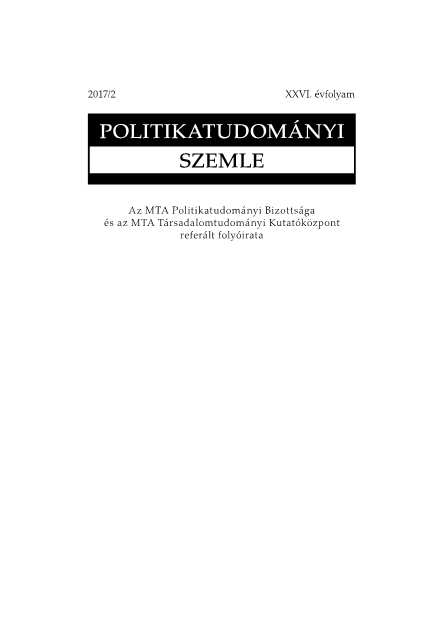A kívülről korlátozott hibrid rendszer. Az Orbán-rezsim a rendszertipológia tükrében
The Externally Constrained Hybrid Regime: Political Regime Typology and the Case of Hungary
Author(s): András Bozóki, Dániel HegedűsSubject(s): Government/Political systems
Published by: MTA Politikai Tudományi Intézete
Keywords: hybrid regime; Orbán regime; European Union; democracy; autocracy; dictatorship; multi-level policy; externally constrained
Summary/Abstract: Our study focuses on the ever-widening grey zone between democracy and dictatorship, and applies the fi ndings of the scholarship on hybrid regimes to the characteristics of the Orbán-regime. The issue of democracy and dictatorship is not an “either-or” problem; rather it is one that can be best described along a continuum. We argue that, due to its hitherto overlooked characteristics, the Orbán-regime belongs to a class of its own among hybrid regimes. The unique properties of this Hungarian hybrid regime follow from the fact that it is part of the European Union, which is made up of democratic member states. Since member states transfer parts of their sovereignty to the European Union, the EU is a site of both “domestic” and “foreign” policy-making, that is, as regime theory suggests, it is both the context in which the Hungarian government operates and an integral part of the Hungarian regime itself. Consequently, the EU functions as a “regime sustaining” and “regime constraining” factor for Hungary, which compels us to describe the current governmental structure of Hungary as an “externally constrained hybrid regime”.
Journal: Politikatudományi Szemle
- Issue Year: XXVI/2017
- Issue No: 2
- Page Range: 7-32
- Page Count: 26
- Language: Hungarian

